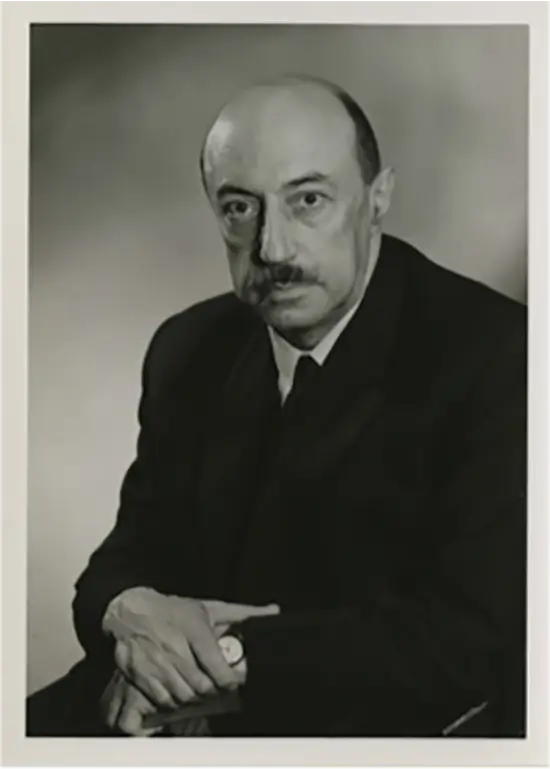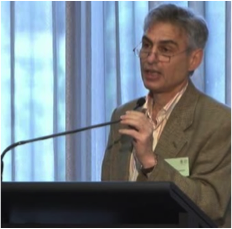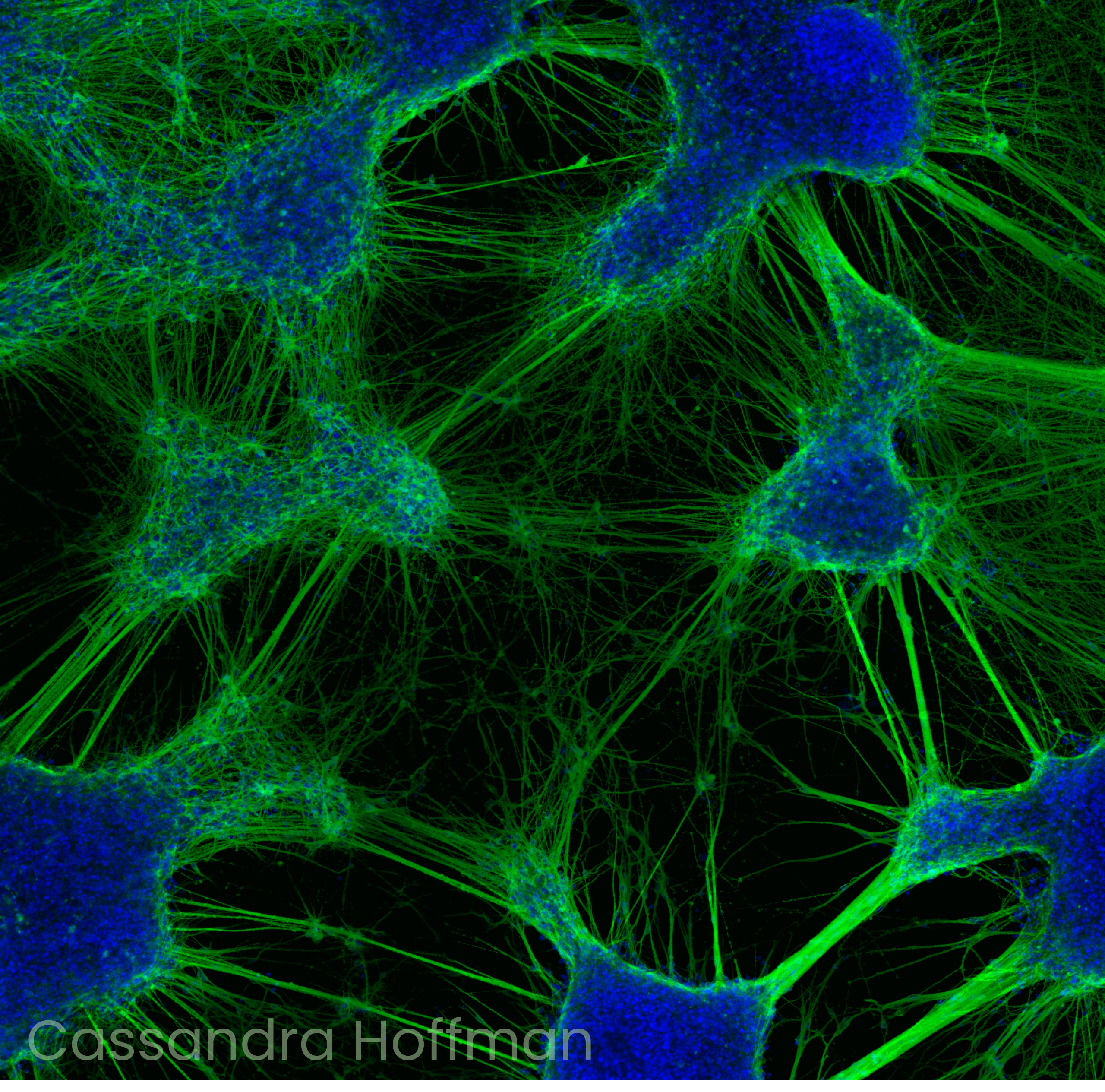Aubrey Lewis Award

Sir Aubrey Julian Lewis
Aubrey Lewis (8 November 1900- 21 January 1975) was the first Professor of Psychiatry at the Institute of Psychiatry, London, and is recognised as being a driving force behind the flowering of British psychiatry after World War II. Aubrey Julian Lewis was born in Adelaide and was educated at Christian Brothers College. He went on to study medicine at the University of Adelaide and graduated with distinction in 1923 (M.B., B.S.).
Aubrey Lewis first worked at the Royal Adelaide Hospital but in 1926 he accepted a Rockefeller Foundation fellowship in psychological medicine. The Rockefeller Fellowship allowed Aubrey Lewis to study at the Phipps Clinic under the mentorship of Adolf Meyer. After postgraduate study in the USA and Germany, Aubrey Lewis joined the staff of the Maudsley Hospitalin 1928 receiving his M.D. from the University of Adelaide in 1931. In 1936 Aubrey Lewis became Clinical Director of the hospital and in 1938 became a fellow of the Royal College of Physicians.
In 1946 the Maudsley Hospital was designated the Institute of Psychiatry the governance of which fell within the University of London and Lewis was appointed to the inaugural Chair of Psychiatry at the Institute, a position he held until his retirement in 1966. Aubrey Lewis became recognised as a leader, educator and administrator and is credited with moulding the Institute into a model of scientific research and teaching attracting many of the most promising medical graduates from around the world. He is also credited with raising the profile of psychiatry worldwide, through his work as an adviser to general medical bodies, national and international research councils, and political organizations.
The Aubrey Lewis Award
The Aubrey Lewis Award recognizes outstanding achievement by an individual researcher within the first ten years of post-doctoral work in the field of Biological Psychiatry. The award is open to all early- to mid-career researchers working in areas with relevance for advancing biological understandings and interventions of psychiatric disorders. Awardees are invited to deliver a special lecture at the annual Biological Psychiatry Australia conference, and will receive complimentary registration and a commemorative certificate. BPA prides itself on a strong culture of diversity and inclusivity, and as such encourages applications from all individuals regardless of gender, race, disability, age, socioeconomics, sexuality, religion or any other attribute.
Applications are open for 2025. Please see application information here. Applications close Friday 14 March at 5pm AEDT.
Past Awardees:
- 2024 – Melissa Sharpe, The University of Sydney
- 2023 – Wolfgang Marx, Deakin University
- 2022 – Robyn Brown, The University of Melbourne
- 2021 – Lianne Schmaal, The University of Melbourne
- 2020 – Bronwyn Graham, The University of New South Wales
- 2019 – Marta Garrido, The University of Melbourne
- 2018 – Rachel Hill, Monash University
- 2017 – Jee Kim, Florey Institute of Neuroscience and Mental Health
- 2016 – Andrew Zalesky, The University of Melbourne
- 2015 – Irina Voineagu, The University of New South Wales
- 2014 – Adam Guastella, The University of Sydney
- 2013 – Michael Breakspear, Queensland Institute for Medical Research
- 2012 – Andrea Gogos, Florey Institute of Neuroscience and Mental Health
- 2011 – Melissa Green, University of New South Wales
- 2010 – Mark Bellgrove, Queensland Brain Institute
Isaac Schweitzer Lecture

The Isaac Schweitzer Lecture
Professor Isaac Schweitzer was a leading Australian psychiatrist with a worldwide reputation in the field of biological psychiatry who died unexpectedly on the 1st February 2013. Affectionately known by all as Issy, Professor Schweitzer graduated in medicine from the University of Melbourne in 1973, completing his diploma in psychological medicine in 1978, and trained in psychiatry at the Royal Melbourne Hospital and the Parkville Psychiatric Unit where Professor Brian Davies was the first Cato Professor of Psychiatry. As a young psychiatrist, Professor Schweitzer choose to continue his training at St Thomas’ Hospital, London and then as a Consultation Liaison Psychiatry Fellow at Montefiore Medical Centre, Albert Einstein College of Medicine, New York. In 1982 Professor Schweitzer was honoured by being awarded the esteemed Milton Rosenbaum prize in psychiatry. There followed many subsequent awards and invitations to speak in Australia and overseas; a highlight being the delivery of the Beattie Smith Lecture in 2006 – the highest honour that the University of Melbourne can bestows on leaders in the field of psychiatry.
Returning to Australia, Professor Schweitzer completed his Medical Degree by completing an extensive body of research on the role of cortisol and stress response in depression. Since that time Professor Schweitzer has published extensively whilst always retaining a core interest in the effectiveness and efficacy of pharmacological treatments of mood disorders. These interests included several randomised clinical trials investigating the potential of nutrition and complementary medicines in the treatment of a range of psychiatric disorders. In addition, Professor Schweitzer showed leader in research on the sophisticated use of electroconvulsive therapy and was a thought leader in determining the usefulness of brain-imaging and genetics as tools for predicting response to medication. In 1995 Professor Schweitzer established a research unit at the Melbourne Clinic where, in 2000, he was appointment to the Healthscope Chair of Psychiatry and Medical Director of the Clinic in 2001. Under his leadership, the Research Unit at Melbourne Clinic has evolved into a world-class teaching and research facility.
Importantly, Professor Schweitzer was chairman of the Australasian Society of Biological Psychiatry for 10 years and has held the offices of Associate Secretary Treasurer and Vice-president of the World Federation of Societies of Biological Psychiatry. In these roles Professor Schweitzer helped foster the development of the discipline of biological psychiatry in Australia and represented that discipline on the World stage. In recognition of this service to the discipline of biological psychiatry in Australia the Executive Committee of Biological Psychiatry Australia decided to name one of the two plenary lectures presented at the Society’s annual scientific meeting as the Isaac Schweitzer Lecture.
Selection Process
The BPA Executive Committee will seek annual nominations from the BPA membership for the Isaac Schweitzer Lecture. The award is decided at the discretion of the executive committee and will be considered primarily on scientific merit. The BPA Equity and Diversity statement will be taken into consideration.
Eligibility
Nominees must reside in Australia. They will have a strong international reputation and outstanding track record of achievement and contribution in the field of biological psychiatry. Nominees do not need to be members of BPA.
Nomination process
Nominations are open to all members of BPA.
Please forward all nominations to biolpsychaust@gmail.com in response to the annual call for nominations.
Your nomination should include a summary (of no more than 250 words) describing your nominee’s major discoveries, along with their leadership and service, to the field of biological psychiatry. Contributions should be of a fundamental nature and may be either in clinical or basic research. The summary will enable the Executive Committee to select a scientist for the annual Isaac Schweitzer lecture. Download guidelines here.
Past lecturers:
- 2024 – Colleen Loo, University of New South Wales
- 2023 – Suresh Sundram, Monash University
- 2022 – Jayashri Kulkarni, Monash University
- 2021 – Anthony Hannan, Florey Institute of Neuroscience & Mental Health
- 2020 – Susan Rossell, Swinburne University
- 2019 – Brian Dean, Florey Institute of Neuroscience & Mental Health
- 2018 – Christos Pantelis, University of Melbourne
- 2017 – Patricia Michie, University of Newcastle
- 2016 – Cyndi Shannon Weickert, Neuroscience Research Australia
- 2015 – John McGrath, Queensland Centre for Mental Health Research & Queensland Brain Institute, The University of Queensland
- 2014 – Paul Fitzgerald, Monash Alfred Centre for Psychiatric Research
- 2013 – Michael Berk, Deakin University
BPA Best Research Paper Award
Biological Psychiatry Australia (BPA) aims to promote excellence in research performed in the field of biological psychiatry within Australia. Research promoted by BPA is cross-disciplinary and cross-species, consisting of Psychiatry, Molecular Biology, Pharmacology, Psychology, Behavioural Neuroscience, Physiology, Genetics, and Epidemiology.
Applications/nominations for the 2025 BPA Best Research Paper Award are due 30 June, 5pm AEST.
The awards are offered to BPA members in three categories:
1) Student (Bachelor, Honours, Masters or PhD program)
2) ECR (0-5 years post PhD)
3) General (any BPA member)
The winners in each category will receive a certificate and a $250 gift card and will be invited to present their paper at a BPA webinar. For guidelines and entry form go here. Applications will only be considered if the appropriate documents are attached to the application (including proof of enrolment for the Student category and proof of PhD completion for the ECR category).

| Year | Student Category | ECR Category | General Category |
|---|---|---|---|
| 2024 | Ashlea Segal | Roberta Goncalves Anversa | Philip Jean-Richard-dit-Bressel |
| 2023 | William Reay | Maria Di Biase | Yann Quidé |
| 2022 | Sidhant Chopra | N/A | Claire O'Callaghan |
| 2021 | Divyangana Rakesh | Leigh Walker | Olivia Dean |

